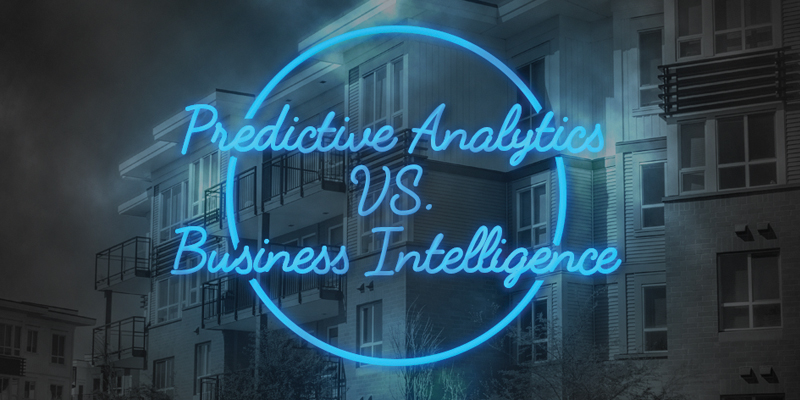Business intelligence (BI) and predictive analytics are common phrases you hear thrown around the office. People often think that predictive analytics are part of BI, but this isn’t the case. Sometimes you might hear BI and predictive analytics used interchangeably when in reality they are very different tools. Most organisations are very data-driven these days, and if you are using a simple BI tool, you are just not using your data as much as you could be. In fact, BI allows you to only assess the tip of the iceberg of your data. In our office, we call predictive analytics ‘BI 2.0’ because they give you deeper insights from your data than BI.
What is business intelligence?
When people talk about BI, they are talking about the process that uses technology, applications, tools and various methods to collect and analyse a company’s data. BI allows you to create reports and run queries against the collected data, and many BI tools will showcase this on dashboards with visual data such as charts or graphs. The analytics involved in BI are often described as ‘predictive analytics’ when in fact they are ‘descriptive analytics’. Descriptive analytics is the analysis of historic data to see what has happened in the past.
Whether something has happened in the past week or the past ten years, a good BI tool would be able to give you these insights easily. Descriptive analytics may give you an answer to your business problems, but this does take more human input and guesswork. Business intelligence is a great place to start if you are just beginning to rely on data, but if you want a deep data-dive, you need to start implementing predictive analytics.
What are predictive analytics?
If they aren’t BI, then what are predictive analytics? Predictive analytics are what comes after business intelligence and this is the tool that is going to make your data live up to its full potential. Predictive analytics are key to seeing what is likely to happen in your organisation. By using data mining, predictive modelling, machine learning and other analytical practices, users can identify future risks or even opportunities in their businesses. With the machine-learning aspect, this means that the algorithms will constantly change and assess and inform you of the most relevant points. This means that your data is no longer static; it will constantly be explored in different ways and the results will change depending on whether the system has discovered something new. Predictive analytics uses statistics, probability and forecasting to answer queries. It can even fill out missing data and tell you what the missing field is likely to be.
BI vs. predictive analytics
Business intelligence
- Uses historic data to show what has happened in the past.
- Can use large amounts of data, but this data is limited to just historic data.
- It is reactive.
- With human input, guesswork, and time, predictions can be made.
- Examples of what information can be gathered: how many open jobs are in an area, number of no-access visits, invoice details.
Predictive analytics
- Analyses historic and current data to predict what is likely to happen in the future.
- Can use large amounts of data and uses machine learning to predict possible future outcomes.
- It is proactive.
- Predictions can be made with the click of a mouse.
- Examples of what information can be gathered: what causes a no-access visit and why, predicting which tenants are likely to fall into debt, whether a job is likely to be completed first time or require more work.
Why should you use predictive analytics?
Everyone has competitors and a great way to stay ahead is to know what is happening in your organisation. By accessing more data insights, your data will become more valuable and you will be able to make strategic, data-driven business decisions rather than basing them on intuitions. Predictive analytics are not only going to answer your questions but also tell you why it has happened and what might happen next. You can use this information to your advantage and use it to improve areas of your business that you probably didn’t even know needed improving. Predictive analytics are the way of the future and are becoming increasingly popular across all sectors.
It is true that BI tools will give you valid information and will give you insights about your business, but those insights will be limited to historic ones. The answers to most of our questions lie in the future and with predictive analytics we can get our answers in the present.
If you are interested in taking the first steps into predictive analytics, the best way to do this would be through a tool that combines both BI and predictive analytics. Do your research and look at all the available software, and make sure that the predictive analytics modules use machine learning to help forecast and predict potential future outcomes. A good predictive analytics tool will allow non-technical users to set up and use the software and provide answers with the click of a button.
Rebecca Jenkins is a business intelligence and predictive analytics consultant at ROCC.


